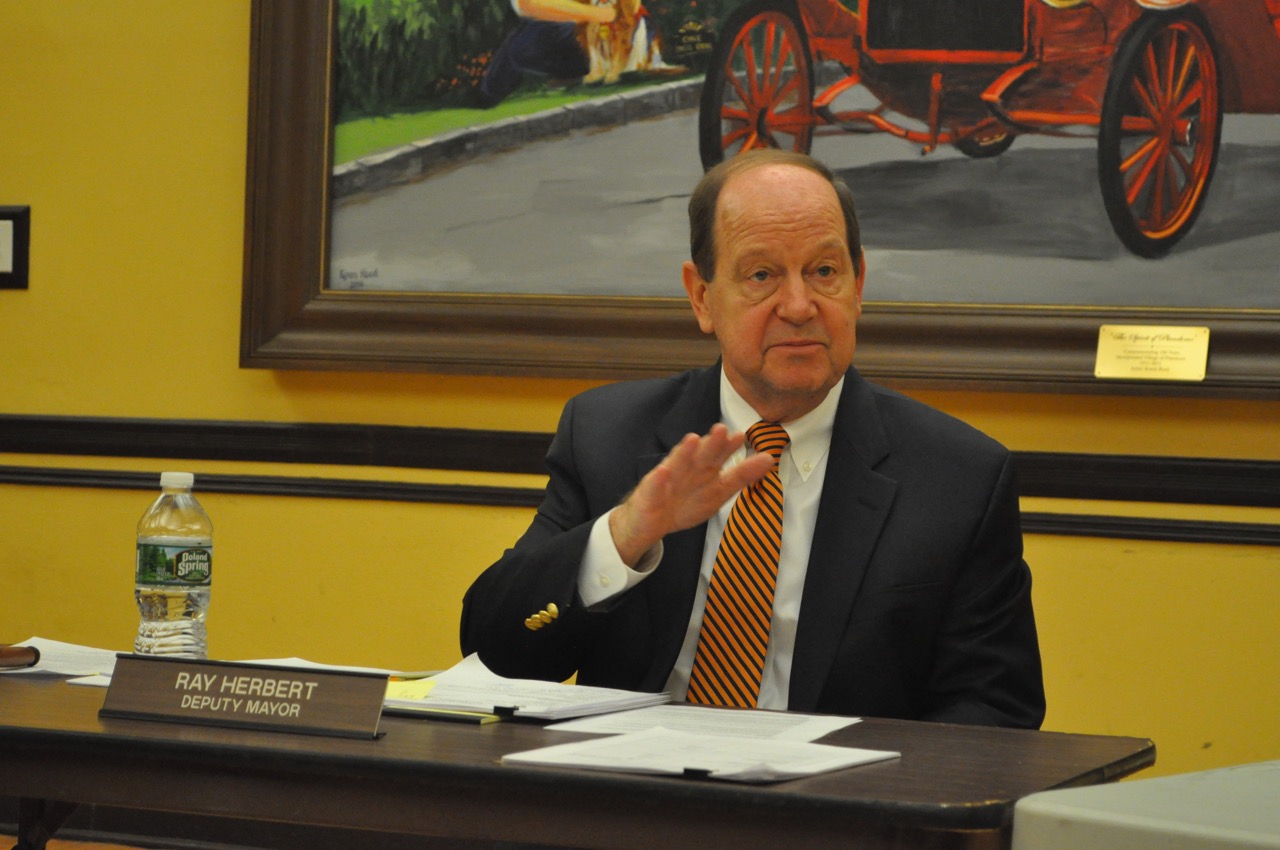By Samuel Glasser
The Plandome Village board meeting was sparsely attended on Monday, but the few residents who showed up strenuously objected to proposed zoning changes that would reduce the maximum size of homes that could be built.
The board passed the ordinance by a vote of 3 to 1 but stressed that this was just the first step in the process and that a public hearing would be held at the next two board meetings.
Trustee Andrew Bartels, who worked with the village’s zoning and architectural review boards on the proposed revisions, said the village is seeing a rise in the number of new homes that seek to maximize the gross floor area, overwhelming neighboring homes.
The board zoning committee recommended reducing the allowed maximum building footprint in each of the village’s four zoning districts, working out to a 25 or 30 percent reduction from the current rules.
The proposed changes were posted on the village website in February for residents’ input. The revisions also include simplifying the formulas for calculating maximum gross floor area and height setback ratios and revising some definitions for clarity.
The committee did an analysis of existing homes and found that 97 percent already conformed to the proposed standard while the others would be grandfathered, Bartels said.
“We want to maintain the character of the village. We are trying to prevent really large egregious structures and are taking the opportunity to revise the code where the board found it ambiguous,’ he noted.
Resident Joe Zahn of South Drive took great exception to the proposed zoning changes and the fact that it was being voted on with few residents present. He said that if enacted, the new rules would prevent him from using his lot to the fullest extent. He complained that the revisions were “arbitrary and capricious.”
“It’s a taking,” he declared, and said that the new rules would cost him a million dollars in lost property value.
Zahn said that this would similarly affect 24 other homeowners and would put the village at risk for $25 million should they successfully sue.
He also took note of the few who attended the meeting and said there should have been better notification of the residents.
Another resident asked, probably rhetorically since no answer was forthcoming, if a portion of his land was no longer available for building would his taxes be accordingly adjusted?
Village Attorney John Ritter said that the process of revising the code “was done according to law.”
“This is a process that has been going on for some time,” he said. “This is a compilation of comments. There will be public hearings. Everyone will be notified. All we are doing is introducing the proposals for discussion. We are not putting a moratorium on construction.”
Deputy Mayor Ray Herbert, who presided, noted that the board needed to formally present the proposals to the public. “There will be a formal hearing and I expect a spirited discussion,” he said.
In other business, the Lauri Strauss Leukemia Foundation Bike Tour will be held on May 20 routed through Plandome and the board wanted to assure that the sponsors would clean up any trash left behind.
The board also voted to enter into a three-year contract with the Center for Municipal Solutions, a consulting firm that helps local governments deal with cellular telephone providers. The contract is being considered because ExteNet Systems, a company that builds cellular infrastructure, wants to install nodes, or antenna boxes, in the village to improve wireless telephone service.
A moratorium is in effect on the installation of wireless equipment on village property, but it expires in August.
Before signing the contract, however, the board instructed the village attorney to have the consulting firm answer questions that recently arose regarding the services it would provide.
The technical aspects of cellphone service are regulated by the state and federal governments, but utility franchise agreements are typically negotiated by local governments.



